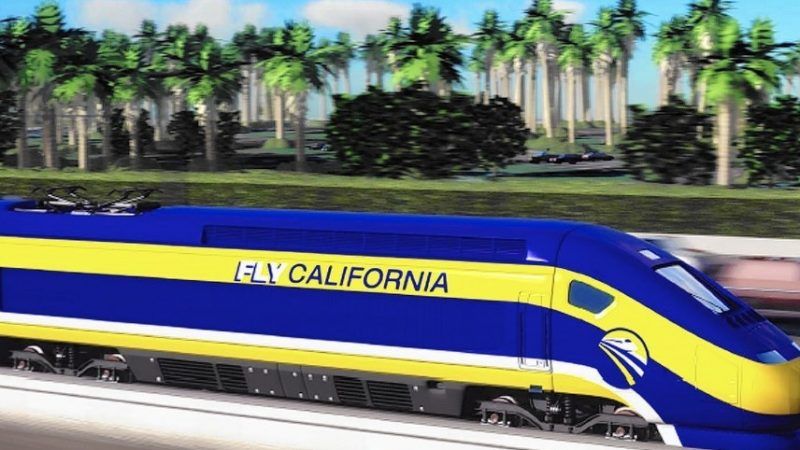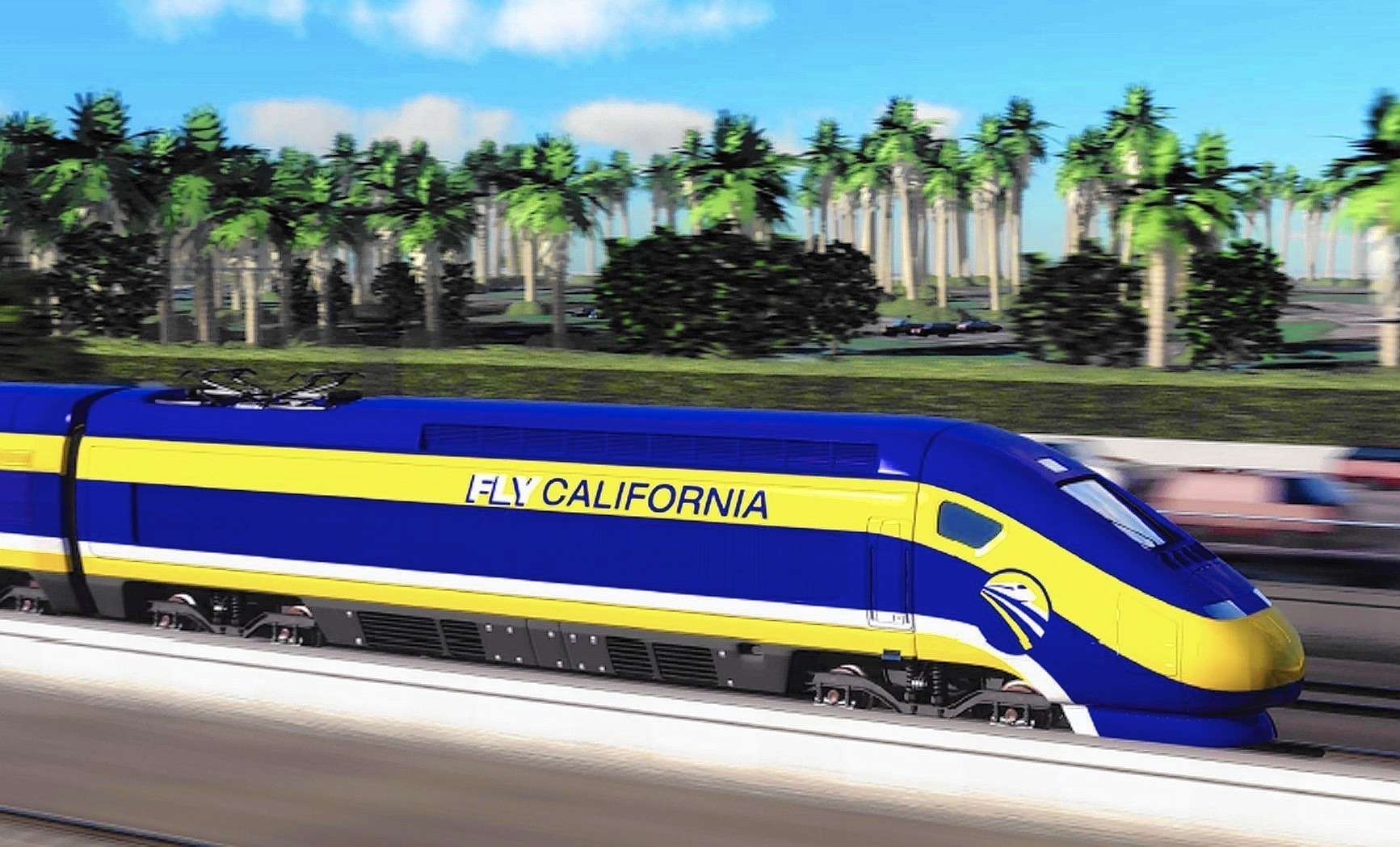Throw Another $1.7 Billion in the California Bullet Train Money Pit
The first leg is already seeing massive cost overruns. Imagine its future.


The very first, very incomplete section of track for the California high-speed rail boondoggle is running nearly $2 billion over budget and is now projected to cost $8 billion, 27 percent more than original estimates.
Ralph Vartabedian of the Los Angeles Times has been documenting the skyrocketing costs of the program, warning it's going to be wildly over its $64 billion budget. This comes as not surprise to the project's critics, who have been warning all along that costs were underestimated and benefits exaggerated. He reports:
Officials have disputed outside estimates that indicate the project's price tag is growing — including one in December by the Federal Railroad Administration that cited a cost of $9.5 billion to $10 billion. In 2015, the authority's main consultant, WSP, also had said in an internal assessment that costs were rising.
The overruns raise a serious possibility: If the reasons for the Central Valley increase also affect other parts of the Los Angeles-to-San Francisco project, then it could drive up the price for the entire $64-billion system by billions of dollars.
Critics long have forecast that the final tab could top $100 billion. But supporters of the bullet train — the nation's largest infrastructure project — reject those assertions, saying the rail line will become a cornerstone of the state's transportation system and that such cost increases should be taken in stride.
No, a high-speed train will not become a cornerstone of transportation in California unless it bans cars (heaven knows, Gov. Jerry Brown would eventually try if his term weren't ending in a year). It will instead require heavy state subsidies in order to operate, unless they massively jack up the price of tickets (currently estimated at $86 to travel the completed length, from San Francisco to Los Angeles).
The ballot initiative authorizing the building of the train does not permit subsidies, so that might be a bit of a challenge.
But nobody can say they were not warned. The man behind the initial ballot initiative to authorize the rail's construction, Quentin Kopp, realized the project had turned into a massive scam and financial boondoggle. He's been suing to try to halt its construction. Watch ReasonTV's recent interview with him below:


Show Comments (26)